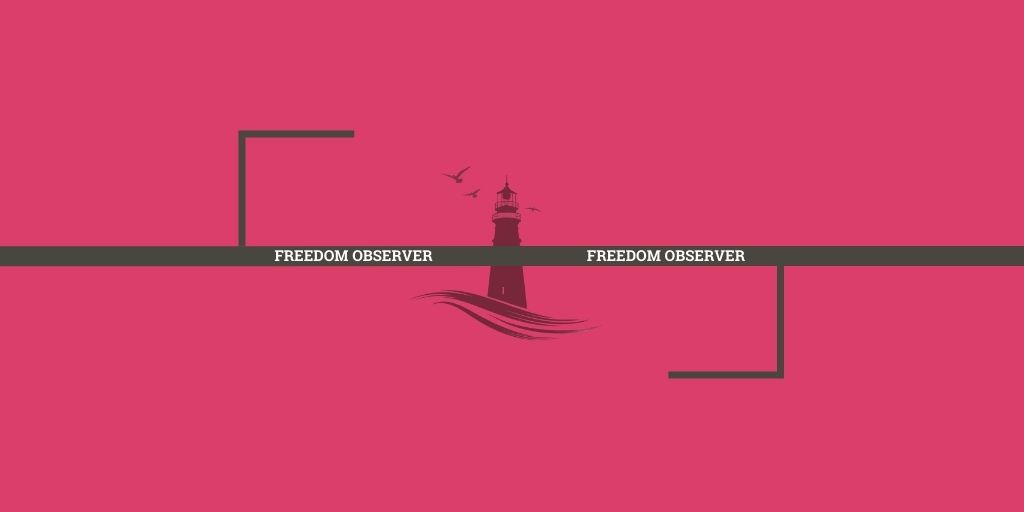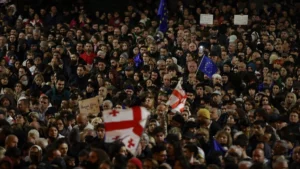From Editor-in-Chief
With the start of the new legislative year on October 1, the country’s political agenda seems to be heating up again. The first sign of this came during President Erdoğan’s opening speech, where he reiterated his call for a “new constitution.” As he has emphasized repeatedly in recent months, the President highlighted the need for a consensual, civil, democratic, and liberal constitution to replace the patchwork 1982 Constitution, a remnant of the September 12 military coup. Erdoğan once again invited all political parties, members of parliament, and all segments of society to support the effort to crown Turkish democracy with a new and civil constitution.
However, there is a peculiar contradiction in the President’s call: while he speaks of an “inclusive, open to consensus” constitution, his language subtly suggests that the creation of a new constitution is essentially a matter for the People’s Alliance, with the opposition merely being asked to support it. This implication is hidden in his invitation to the opposition to “support our struggle” (“mücadelemize”). Erdoğan’s perspective becomes even clearer in the following words: “We are making our preparations, and we are doing so very meticulously. But that does not mean we are closing the door to all other ideas. In the preparation process for the new constitution, we will respect every idea, listen to every thought with interest, and consider every constructive proposal in good faith.” In other words, if they wanted to, they could indeed close the door to any “other ideas” that might come from the opposition.
The People’s Alliance seems to say, “We are the primary actors in the constitution-making process, and we only expect you to support us with modest contributions if you have any.” This implies that if they had the numerical power to change the constitution, they wouldn’t even feel the need for this superficial courtesy. However, “consensual” and “inclusive” constitution-making does not work this way—in fact, constitution-making does not work this way at all. Democratic constitution-making should not be about one side presenting a draft for others to simply join; it must be an active initiative involving all relevant segments of society, built through open negotiations and discussions, not a pre-prepared text imposed on them.
Moreover, if what is being proposed is not just a constitutional amendment but a completely new constitution, as stated, it can only be achieved through a truly democratic constituent assembly specifically created for this purpose, or at the very least, by making it the primary agenda of the last parliamentary election—without any electoral threshold applied. Furthermore, the current conditions in Turkey are far from suitable for attempting to rebuild the entire political system from scratch.
Speaking of the opening of the new legislative year, it’s worth noting the significance of CHP’s decision to stand and greet President Erdoğan upon his arrival at the podium for his opening speech, as per Özgür Özel’s instructions. This move, which deviated from the CHP’s usual stance, unsurprisingly stirred criticism within the party and caused some discomfort. Although the strongest reaction came from the former chairman, it’s clear that Kılıçdaroğlu wasn’t the only one who viewed this kind of “normalization” as politically misguided. Indeed, some CHP members refused to stand despite their leader’s instructions when Erdoğan entered the assembly, while others chose not to attend the session at all. Another action by Chairman Özel that raised tensions within the party was his decision to shake hands and pose amicably with the leader of the MHP, a figure known for his aggressive tone and threats against the CHP, during the opening reception.
Özel’s attempts to justify both actions under the premise of “respecting the office” have not been particularly convincing to CHP members, nor perhaps to the general public. It remains uncertain whether this approach—aimed at avoiding the image of a “reckless” leader who incites conflict and tension—will genuinely benefit the party on its path to power, especially given Özel’s behavior has been perceived by some as “compliant” or even “submissive” in the face of the ruling government. This strategy could potentially cast doubt among the broader public on whether Özgür Özel possesses the decisiveness, courage, and boldness needed to assume the responsibility of power and to challenge Erdoğan effectively.
Another significant issue currently worrying the CHP community involves the Mayor of Istanbul, Ekrem İmamoğlu. As is well known, a criminal prosecution against İmamoğlu is ongoing based on accusations that he insulted members of the Supreme Electoral Council (YSK). This means there is a possibility that İmamoğlu could be convicted in this case, leading to his disqualification from public office due to a “political ban.” In such a scenario, İmamoğlu’s—and the hopes of those who support his presidential candidacy—dream of running in the next election could be dashed. Therefore, while CHP members anxiously await the outcome of the appeal currently pending at the Istanbul Regional Court of Justice, they are also deeply concerned about what steps should be taken should the court impose a political ban.
In the meantime, a glimmer of hope has emerged for İmamoğlu’s supporters from a criminal court in Çorum. The Çorum 3rd Criminal Court of First Instance judge presiding over a similar case has filed an objection with the Constitutional Court, arguing that the crime of “insulting a public official due to their duties” is unconstitutional and should be annulled. Now, CHP members appear to be pinning their hopes on the Constitutional Court, anticipating that it might annul the legal provision in question on the grounds of unconstitutionality.
This issue of Freedom Observer continues with Ali Rıza Çoban’s findings on the rule of law from the *Liberal Values Survey*, Ömer Faruk Şen’s commentary on the verdicts in the Sinan Ateş case, and Caner Gerek’s evaluation of the trajectory of inflation control policies.
See you in the next issue.
* Prof. Dr. Mustafa Erdoğan
Does Turkish Society Demand the Rule of Law?
The Liberal Values Survey conducted by the Freedom Research Association once again revealed that the public in Turkey does not show a strong demand for freedom and equal justice for all.[1] The survey, which included 16 questions designed to measure the extent to which participants accept the ideas of limited government and the rule of law, was conducted face-to-face (F2F) with 2,011 people across 28 cities, representing the general population of Turkey between May 20 and June 10, 2024. Among the respondents, 50.1% were women and 49.9% were men, with an average age of 36.4 years.
In terms of education, the participants’ distribution was as follows:
– Illiterate: 0.2%
– Literate but no formal schooling: 0.9%
– Primary school: 9.9%
– Middle school: 11.7%
– High school: 38.0%
– Vocational school: 9.1%
– University: 28.7%
– Master’s degree: 1.0%
– PhD: 0.6%
When asked whether they agree with the statement, “No limitations should be imposed on the powers of the state,” 16.61% of respondents said they “strongly disagree,” 37.39% said they “disagree.” In comparison, 10.94% were “undecided,” 25.16% “agree,” 6.96% “strongly agree,” and 2.93% had “no opinion.” As the results show, just over 50% of participants opposed the idea of an unlimited state, whereas 32% supported it.
Looking at the breakdown by political views, it is unsurprising that among those who identify as “nationalists,” 9.35% said they “strongly disagree” with the statement, 30.94% “disagree,” 39.57% “agree,” and 9.35% “strongly agree.” Among those who do not identify as nationalist, the figures were 14.26% “strongly disagree,” 34.57% “disagree,” 33.18% “agree,” and 6.51% “strongly agree.” As we can see, more than 50% of those who identify as nationalists believe that the state should not be limited in any way.
What is even more interesting is that the idea that the state should not be limited is far more widely accepted among those who identify as traditional conservatives, devout conservatives, political Islamists, and radical Islamists. Among those who identify as conventional conservatives, 51.32% agreed or strongly agreed that the state’s powers should not be limited. This percentage rises to 72.69% among devout conservatives, 68% among political Islamists, and 58.06% among radical Islamists, showing significant support for the idea of an unrestricted state.
A similar pattern is observed regarding individual rights when in conflict with the state’s interests. When asked about their views on the statement “The state’s interests and survival come before individual rights,” 13.72% of respondents said they “strongly disagree,” 34.21% “disagree,” 11.49% were “undecided.” In comparison, 30.78% “agree,” 7.16% “strongly agree,” and 2.64% had “no opinion.” As we can see, approximately 40% of the public supports the notion that the state’s interests and survival take precedence over individual rights.
The idea of adhering to the law is not very widespread. A notable 32.47% of the population supports the notion that public officials may, when necessary, exceed their legal authority. There is also insufficient sensitivity regarding judicial independence. 40.82% of respondents believe that the President should be able to meet with members of the high judiciary to discuss cases they may eventually rule on.
Moreover, certain segments of society support limiting the rights of groups they perceive as “other.” For example, nearly 60% of nationalists and conservatives support excluding LGBTI individuals from the right to freedom of assembly.
These figures reveal that a strong demand for the rule of law is lacking among large portions of the population. They also indicate that a significant portion of society does not agree on common values, with cultural and political divisions being widespread. Under these conditions, it is clear that expecting a parliament dominated by parties from the People’s Alliance to produce a liberal, inclusive constitution based on the rule of law and limited government is not realistic.
* Doç. Dr. Ali Rıza Çoban – Constitutional Lawyer
Verdict Announced in Sinan Ateş Case
The Ankara 32nd High Criminal Court has announced its verdict in the case concerning the 2022 murder of former Ülkü Ocakları president Sinan Ateş. The shooter, Eray Özyağcı, along with the instigators Doğukan Çep and Tolgahan Demirbaş, as well as Vedat Balkaya, who helped Özyağcı escape on a motorcycle, were sentenced to aggravated life imprisonment for “premeditated murder.” Additionally, Özyağcı and Balkaya were sentenced to 13 years in prison for “attempted murder” of complainant Selman Bozkurt. Suat Kurt, who was in custody for conducting surveillance outside the office, received a similar sentence of aggravated life imprisonment, along with an additional 13 years in prison for the same charges.
Other defendants, Mustafa Uzunlar and Aşkın Mert Gelenbey were sentenced to 15 years each for “premeditated murder,” while Murat Can Çolak and Emre Yüksel received 18 years each for the same crime.[2] During the hearing, an unusual incident occurred. A relative of one of the defendants attacked. Sinan Ateş’s sister and their mother, Saniye Ateş, were rushed to the hospital after feeling unwell. The attacker was detained by police, while Sinan Ateş’s sister, Selma Ateş Kazanç, declared, “If anything happens to me, MHP is responsible.” Sinan Ateş’s wife, Ayşe Ateş, had made a similar statement in the past.
This case has become emblematic of the erosion of the rule of law and the judicial system in Turkey in many ways. Numerous politically connected facts were either ignored or covered up. For instance, despite the presence of concrete evidence, many key details were omitted from the accepted indictment. These include the insufficient evaluation of expert reports, the failure to explain the motives of Demirbaş and Çep for inciting the murder, the lack of clarity on the reasons behind the murder, and the incomplete examination of evidence. Additionally, Tolgahan Demirbaş’s arrest at the home of former MHP deputy Olcay Kılavuz was left out of the indictment, and his potential political connections were not investigated. Furthermore, the testimony of Sinan Ateş’s wife, Ayşe Ateş, was not included in the indictment.[3]
From the outset, the MHP has maintained an aggressive stance, asserting that neither the party nor its members bear any responsibility for the murder, and MHP lawyers even requested to join the trial as injured parties. Throughout the trial, MHP leader Bahçeli targeted journalists who questioned the party’s connection to the case, stating, “We won’t let owls hoot at our door, nor will we tolerate the vultures flapping their wings. I’m warning Halk TV and the Republican People’s Party: watch your step. You cannot question the MHP with four clown reporters, and we will not allow it.”
The manner in which this case has been handled, from the repeated replacement of judges and prosecutors to the omissions in the indictment and the final verdict, shows that the assassination of Sinan Ateş has been treated as an ordinary criminal case. Many pieces of evidence that have been openly discussed in the public sphere were overlooked to protect individuals and groups who are considered untouchable. Despite not being an unsolved case, the failure to uncover the motives behind the assassination has deeply wounded the public conscience and will be remembered for years as a symbol of injustice. As Ayşe Ateş stated after the verdict, “In this trial, only the foot soldiers were judged. The masterminds of the murder are still walking free.” This situation not only undermines trust in the justice system but also highlights the erosion of the rule of law and the failure to meet society’s demand for justice.
* Dr. Ömer Faruk Şen– Missouri University
Mehmet Şimşek’s Intervention in Cash Preferences
We are living in a time when cash usage is steadily declining, and payments are increasingly being made through electronic platforms. Credit cards and other electronic payment methods are becoming more widespread across countries. Despite this growing trend, cash still endures to some extent. One of the main reasons for this is that non-cash payments are not always considered an ideal payment method. At least for some users, cashless payments are not yet a sufficiently reliable technology and, in fact, bring with them various problems.
First and foremost, cash remains a widely accepted form of payment across many sectors. It is also a convenient, portable, and fast payment tool that frees individuals from dependency on technology. Moreover, in certain circumstances, cash can be both safer and more anonymous than electronic payment methods. However, it would be wrong to idealize the use of cash based on these benefits alone—it may not be ideal for some individuals or for the public at large.
Electronic payment methods like credit cards are one of the main reasons why people avoid using cash for large transactions. When individuals need to make large payments, they often prefer not to carry large sums of cash, which can attract unwanted attention and pose security risks. For many, carrying cash presents significant safety concerns. Furthermore, cash payments do not leave a trace, making it difficult to track transactions and, in some cases, impossible to provide proof of payment when needed. Additionally, cash cannot be used for online shopping. From a governmental perspective, cash usage supports the informal economy and poses a challenge in monitoring citizens and understanding their behaviors.
As we can see, both cash and electronic payment methods offer different advantages and disadvantages. These differences can influence the preferences of both consumers and businesses. However, recent regulations and practices have increasingly pushed consumers and businesses toward credit card transactions. On the consumer side, the lack of new, high-value banknotes being issued encourages spending via credit cards. On the business side, it was announced last week that firms refusing to accept credit cards will face fines. Mehmet Şimşek’s statement on the issue is as follows:
“From now on, all retail merchants and businesses providing goods and services are required to use new-generation cash registers and must offer the option of paying by bank or credit card. During audits conducted by the Revenue Administration, special irregularity fines are being imposed on those who do not have these new payment devices or do not offer card payment options. We have seen that some businesses, citing high bank commission rates, demand higher amounts for card payments compared to cash. It is important that our taxpayers do not pass these commission fees onto citizens under this pretext.”
The government’s policy is highly problematic from a market-oriented perspective for three key reasons. First, it imposes restrictions on economic freedoms. By forcing firms to adopt a specific technology, businesses are no longer able to make the most suitable decisions for their own operating models, with the government instead dictating these choices. This limits the autonomy of businesses. Second, this policy violates property rights by making POS machines mandatory, as the government is essentially deciding how companies can use their privately owned resources. Such interventions, where the market does not naturally determine the adoption of payment systems, distort the market. Third, the costs associated with acquiring POS machines and paying bank commissions on each transaction increase the expenses for firms. Many businesses have pointed out that the commissions charged per transaction are quite high, significantly raising their operational costs. For example, fuel companies have been reducing the use of POS devices due to the high commission fees charged by certain banks. Additionally, businesses often pass some of these increased costs onto consumers, resulting in harm to both producers and consumers.
In light of these violations and rising costs, penalizing the choice of cash represents a troubling contradiction to the principles of the free market. These types of interventions also provide further evidence that Mehmet Şimşek is operating with a pragmatic mindset rather than a truly market-oriented one.
* Dr. Caner Gerek
1 https://oad.org.tr/yayinlar/arastirma-turkiyede-liberal-degerler-2024/
2 https://tr.euronews.com/2024/10/02/sinan-ates-davasinda-karar-aciklandi-11-saniga-hapis-cezasi-verildi
3 https://www.bbc.com/turkce/articles/cly474xlw0wo





